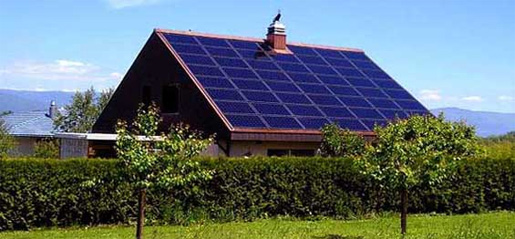Germany’s EV sales PLUMMET by almost half in first 6 months of 2024
08/15/2024 / By Ava Grace

The sales of electric vehicles (EVs) in Germany have dropped by almost half in the first six months of 2024.
The German daily newspaper Die Welt reported on this development, noting that EV sales among private customers in Germany have dropped by 47 percent compared to a year prior. This drop in sales serves as a major setback in the country’s goal of becoming “carbon neutral” – which the nation’s leftist politicians are more than willing to impose on the population.
“Germans are becoming increasingly skeptical about electric cars. Current figures from car dealerships reveal an escalation in rejection,” Die Welt said. While fully electric cars have see a 47 percent drop in sales, hybrids have also seen a similar decline with sales plummeting 37 percent over the same period.
In contrast, internal combustion cars have seen an uptick in sales. The number of gasoline-powered cars being purchased rose by 24 percent, while those powered by diesel rose by 20 percent. (Related: Electric vehicles performed WORSE in EPA estimates than gas-powered cars: The EV push is a RIGGED SCAM.)
“Dealerships are not expecting any improvement for the second half of the year. Of the car dealerships surveyed, 91 percent rate the order situation among private consumers for purely electric cars as ‘poor’ or ‘very poor’ for the year as a whole,” the German broadsheet continued.
Pierre Gosselin of NoTricksZone commented on this development: “Buyers have become turned off by the lousy national charging infrastructure, range limitations and high costs. Moreover, many consumers have begun to understand that e-cars are not that green after all and pose their own set of environmental challenges. Owning an [EV] offers very few benefits, but come with high costs.”
“Politicians in Germany had been racing to eliminate fossil fuel cars and replace them with [EVs]. But then the technical and economic realities began to sink in – especially among private consumers, who are turning their backs on them in droves.”
Drop in German EV sales follows a 16-month climb
In January, the Wall Street Journal (WSJ) reported a similar development with regard to EV sales in Germany.
At the time, the European Automobile Manufacturers Association (ACEA) said sales of fully electric cars in Germany dropped by 48 percent and plug-in hybrid car sales dropped by 74 percent in December 2023. Continent-wide, sales of full EVs dropped by 17 percent that month.
“Analysts warned that the December sales period could mark a negative watershed moment for the industry, threatening to slow Europe’s adoption of EVs … when the EU is racing to ban the sale of new conventional cars that burn [gasoline] and diesel by 2035,” the WSJ stated.
“Germany’s abrupt cancellation of EV subsidies … was a major factor in the evaporation of demand for new EVs, but analysts said the lack of incentives isn’t the only cause. Deeper structural problems in the German economy and global uncertainties also weigh on consumers.”
Constantin Gall, Ernst & Young managing partner and head of mobility for Western European markets, said “the weak economy, high financing costs and considerable geopolitical tensions are leading to a reluctance to buy on the part of both private individuals and companies.”
He continued: “In Germany, the now complete lack of subsidies for electric cars will also slow down growth. All in all, 2024 is likely to be a difficult year for the automotive industry.”
Head over to RoboCars.news for similar stories.
Watch this video of former President Donald Trump slamming efforts to push EVs on Americans as the country doesn’t have the necessary infrastructure for their full adoption.
This video is from the NewsClips channel on Brighteon.com.
More related stories:
Electric vehicles are a SCAM – here’s why.
Electric vehicles are unreliable and not cost-efficient – especially in cold weather.
Electric vehicles have more quality issues than combustion engine cars, new study finds.
Sources include:
Submit a correction >>
Tagged Under:
bubble, carbon neutral, climate change, Collapse, debt collapse, economic riot, electric cars, electric vehicles, EV sales, finance riot, flying cars, Germany, green living, Green New Deal, market crash, money supply, products, risk, robocars
This article may contain statements that reflect the opinion of the author




















